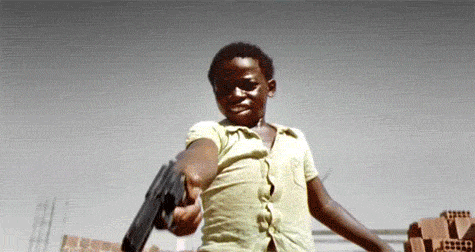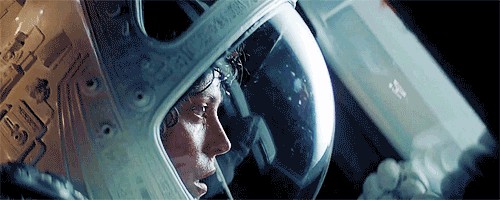To be fair, the word "protagonist" just refers to the main character in a story without necessarily indicating anything about their morality. You can have villainous protagonists and heroic antagonists, to say nothing of other variations. Annie in
Hereditary is a weird choice simply because
WARNING: "Hereditary" spoilers below
she strikes me as a relatively ordinary person who only turns villainous once she ends up being possessed at the end, so I don't think it's automatically weird to be sympathetically invested in her journey throughout the film.
she strikes me as a relatively ordinary person who only turns villainous once she ends up being possessed at the end, so I don't think it's automatically weird to be sympathetically invested in her journey throughout the film.
I know, I was in no doubt as to what the word itself means - just tend to root for antagonists for some deeply ingrained psychological reasons, obviously. That’s why I kind of went off on a tangent re: antagonists. Hardly ever find ‘good guy’ protagonists awesome.
I watched
Hereditary a couple of months before my own grandmother passed away. I adored that woman, we were inseparable. The matriarch funeral was very topical and really resonated.
So, having rewatched the thing a dozen times since then, it really hits me hard how no one even tries to make Annie feel better. Her feelings, albeit inconvenient and ugly and raw, are completely dismissed, even by her husband who supposedly
WARNING: spoilers below
is the love of her life (is that even reciprocal?). To me when she says in the support group meeting, ‘…not that I am to blame, but I am blamed’ really drives it home, because she is! The family and the director see/designate her as a villain long before anything untoward happens
is the love of her life (is that even reciprocal?). To me when she says in the support group meeting, ‘…not that I am to blame, but I am blamed’ really drives it home, because she is! The family and the director see/designate her as a villain long before anything untoward happens
.
I think there’s definitely a kernel of truth to the fact that women are ignored when someone dies and expected to behave appropriately. I would not even call myself a feminist, like, at all.
But to me, she is being portrayed as a villain from the get-go, because
WARNING: spoilers below
she unreservedly loved one of her children more (or didn’t love the other at all, depending how you look at it), because she dared be creative and put her work above her family ( @Takoma11, remember the Atlantic piece we discussed?). She doesn’t try to be ‘nice, maternal and understanding’ towards Peter. Hell, her funeral speech is rather… quirky. Not empathetic, people would say. All of that, to me, looks like she’s being put across as a villain almost immediately.
she unreservedly loved one of her children more (or didn’t love the other at all, depending how you look at it), because she dared be creative and put her work above her family ( @
Takoma11, remember the Atlantic piece we discussed?). She doesn’t try to be ‘nice, maternal and understanding’ towards Peter. Hell, her funeral speech is rather… quirky. Not empathetic, people would say. All of that, to me, looks like she’s being put across as a villain almost immediately.
But that could be a deeply subjective take for a variety of reasons.
Either way, so many reviews make an explicit point of her being extremely unlikeable that I see it as deliberate. Quite small a sample though it may be, I don’t have a single IRL acquaintance, male or female, who sympathised with her.





